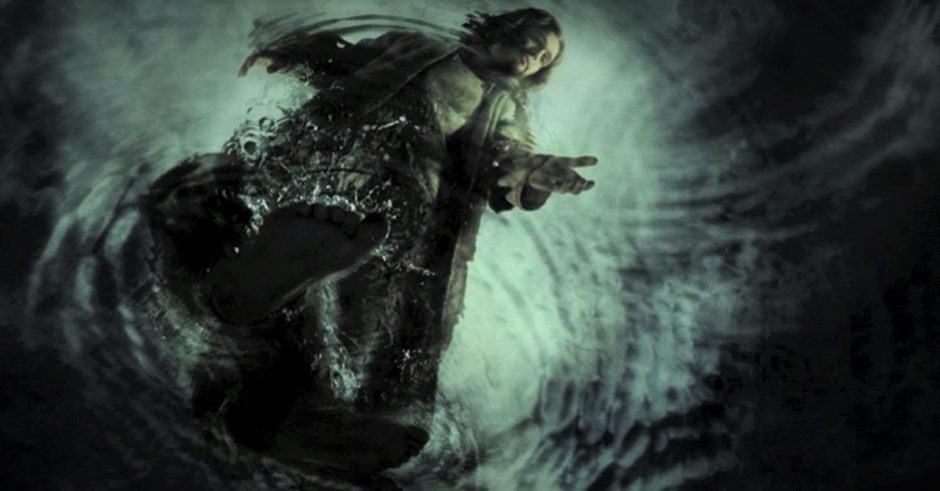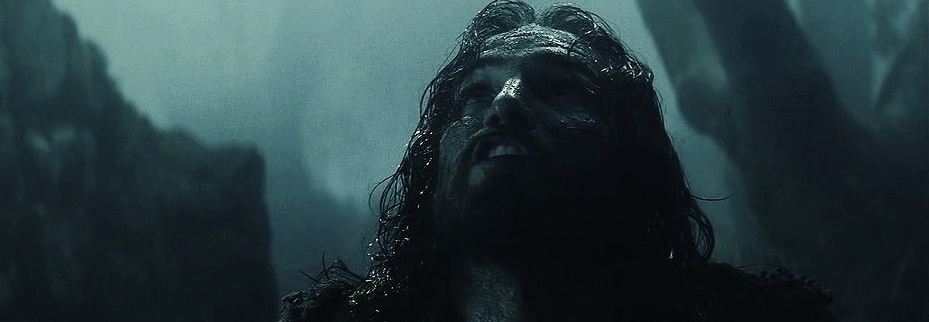“Set Free? Set free from what? What does it mean, ‘addicted to me’?”
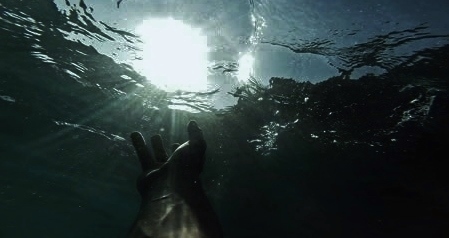 Are you in too deep… overwhelmed… like you’re drowning? Are you often feeling discouraged… defined by failure… experiencing depression? Ever wonder, “Is this all there is?” Is happy even possible? Have you been wounded by betrayal… mired in guilt and shame… imprisoned by rejection and fear? Are you preoccupied with resentment? Are you broken, feeling you’re beyond repair? Do you want to be restored into wholeness… to live freely to more fully experience love, contentment, and joy?
Are you in too deep… overwhelmed… like you’re drowning? Are you often feeling discouraged… defined by failure… experiencing depression? Ever wonder, “Is this all there is?” Is happy even possible? Have you been wounded by betrayal… mired in guilt and shame… imprisoned by rejection and fear? Are you preoccupied with resentment? Are you broken, feeling you’re beyond repair? Do you want to be restored into wholeness… to live freely to more fully experience love, contentment, and joy?
by Steven Gledhill for FREEdom from MEdom Project
Life is an ocean. Its currents are pulling you under. Sharks are everywhere, circling, seeking to devour you. Now, God has sent you a boat so you can live your life without fear of drowning or being consumed by its predators. From a yearning heart of compassion, Jesus is here extending his hand. Please, take this lifeline of compassion into the very best of your new life experience.
Now, the following is an in-depth introduction on the fallen human condition and what God decided to do about it. And since we have to start somewhere, why not from the beginning… Where and when did it all begin, this thing we call life?
Why God? Why Not God?
“What comes into our minds when we think about God is the most important thing about us.” —A.W. Tozer
Well, something had to always exist. Was the universe always out there? Was there something smaller than a speck of dust that always existed, that somehow randomly mutated into every intricacy that is within and throughout life… that somehow contained within it all of the matter, DNA, and intelligence of everything that ever was, is, and ever will be? Whatever it was, was it alive? Wouldn’t it have to be to beget life? Is it possible that one random incarnation after another somehow, in some way, just happened to fashion together all of the aimlessly roaming parts in some infinitely vast space that through some arbitrary fluke sparked into existence the “miracle” of life?
Or, did something come from… nothing? Hmm. If so, then ‘nothing’ is ‘something’, and ‘nothing’ had to come from ‘something’ with the capacity to become something more… to eventually through random coincidences calculate the full measure of its evolutionary course. ‘Nothing’ would have to originate and organize from within itself the core ingredients and constitution for ‘something’ to live. Now, that would be something.
Huh?
Okay, no doubt there has been evolution through the thousands (perhaps millions) of millenniums throughout the ages of everything living. But how is any of it possible unless God is directing its course, paying attention to every precise detail necessary to get it right?
The flipside?
I suppose one could release into space a trillion-piece jigsaw puzzle, each piece a billion miles away from the other, and they would, without any direction or purpose, somehow find somewhere in the vast space to find each other, solved, with every mindless piece perfectly fitting into just the right place. That’s possible, right? The odds of that happening are pretty good in comparison to billions and billions of years of incidental anomalies forming into the universe and life as we know it.
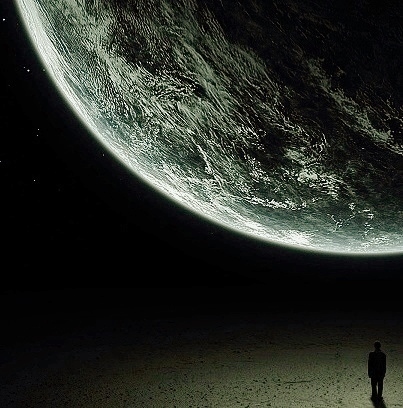 Have you ever considered how much has to go just right for life to even possible on a planet receiving constant force from a mammoth incendiary power source? Have you wondered how we can be spinning and flying through the universe at phenomenal speeds, trusting stratospheric and atmospheric realities—not to mention gravity—to remain stable so that we can exist? What maintains order in the universe to prevent planetary destruction? Doesn’t it make more sense that some sovereign mindful entity has to be the catalyst at the center of it all?
Have you ever considered how much has to go just right for life to even possible on a planet receiving constant force from a mammoth incendiary power source? Have you wondered how we can be spinning and flying through the universe at phenomenal speeds, trusting stratospheric and atmospheric realities—not to mention gravity—to remain stable so that we can exist? What maintains order in the universe to prevent planetary destruction? Doesn’t it make more sense that some sovereign mindful entity has to be the catalyst at the center of it all?
Have you ever considered everything that has to go exactly right for your body to even function? Why does it all work? What about the intricacies of your brain transmitting specific informative signals just so you can wake up and get out of bed? Why does your heart beat and keep beating? Why does breathing work? Why does food nourish your body and provide systemic sustainability? Why does sleep restore order and energy when we’re exhausted and broken down? Why do we grow? Why do we decay and die? Why do we think and feel and reason? That all just happened by chance? Did it really? That’s believable?
The evolution of life without God… the genesis of life with God… where lies the evidence—the verifiable proof—for either?
While it may not seem altogether possible to offer tangible proof that God is all that God is, a reasonably intellectual case can indeed be made when applying common sense. On the other hand, since atheists rely on scientific data and evidence to prove the theories they want acknowledged as fact, the burden of proof is then laid before their throne, to prove their assertion that something somehow came from nothing.
By faith we understand that the entire universe was formed at God’s command, that what we now see did not come from anything that can be seen. Hebrews 11:3 (NLT)
“People laugh at me and say you can’t really believe that. Look, if I can believe that God created the world and everything in it, why wouldn’t I believe…? That’s not a hard thing.” —Vincent Furnier (aka. Alice Cooper)
You see, I have no problem with the ‘big bang’ notion of how things came to be. “Let there be light…” Then… BOOM! Something blew stars and galaxies into what became the ever-expanding universe and then, well… “there was light.”
Understand that both of these “theories”, random evolution and creation, require a degree of faith. I simply find it more reasonable to wrap my mind around the reality of an eternal creator. If that makes me the fool, then so be it. If I’ve somehow missed it believing in God, I’ve lost nothing. But if God is alive, and is loving and gracious, then I have everything to gain believing that. Please understand that truth is not subjective. It is what it is. One way or the other, truth is truth whether I believe it or not.
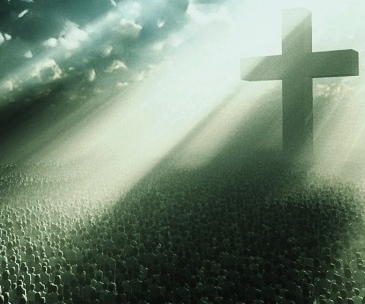 “That our idea of God corresponds as nearly as possible to the true being of God is of immense importance to us… where it is inadequate or out of plumb the whole structure must sooner or later collapse.” —A.W. Tozer
“That our idea of God corresponds as nearly as possible to the true being of God is of immense importance to us… where it is inadequate or out of plumb the whole structure must sooner or later collapse.” —A.W. Tozer
Acceptance in the reality of God tends to lie in the perception of who and what God is. If God embodies the sovereign standard throughout the universe, and God is loving and accepting of me, then I am all in with God. If God is judging me, critical of what I want and do, why would I want anything to do with God? A predatory, condemning God is not good for me. I am not at all comfortable with that. That God is a taker of life and must not exist. But… hmm… What if God accepts and loves me, and judges and opposes things that I do when I do not live up to his standard; yet is compassionate, merciful, a giver of life, and remains generously favorable towards me? What then?
Why Heaven and Hell, then?
It’s often asked, “How can a sovereign, loving God send anyone to hell? How is that love?”
It’s a fair question.
What is heaven? What is hell?
What if hell is merely the absence of good… the absence of compassion and mercy? You would find nothing that is good in hell. What if hell is best described as an existence without good, where evil is given free reign to breed, grow, expand, and abound, seeking to overwhelm and overcome everything in its path? What if hell is the ugly, painful, miserable condition of this world without love in it at all? What if possessing free will leads to selfish thinking and behavior? What if selfish thinking and behavior results in the opposite of giving, which is taking? What if the essence of giving is love, and that taking produces jealousy, resentment, injustice, and ultimately hatred… until it is evil?
What if hell is the light going out in an otherwise dark existence?
Then God said, “Let there be light,” and there was light. And God saw that the light was good. Then he separated the light from the darkness. Genesis 1:3-4 (NLT)
“The people who walk in great darkness have adjusted their eyes.” —John Eldredge
What if hell is the absence of God’s presence? What if hell is the absence of conviction concerning right and wrong… good and evil? What if hell is the survival of the fittest without any regard for who gets hurt?
When He has come, He will convict the world of sin, and of righteousness, and of judgment (regarding) sin, because they do not believe in Me… When He, the Spirit of truth, has come, He will guide you into all truth. John 16:8, 9, 13 (NKJV)
What if hell is the absence of the truth that rescues us from what’s destructive within, and defends us against the bane of evil throughout?
While I have suggested this idea of what hell could be, I do not really know or understand what or where hell is. There are a great deal of people suffering in the world for one reason or another who feel like they are experiencing hell right now. There is so much hate and evil in the world. We all live in the world together. We carry the burden of injustice, entitlement, jealousy, and resentment, doing evil to one extent or another. Then what? We blame a sovereign, loving God for the consequences for our collective behavioral choices?
What if heaven is everything good and right… absolutely everything? You would find nothing bad or wrong in heaven. What if you could go to heaven until you did something wrong or bad and then, oops, to hell with you? Wouldn’t you be living in constant fear in what is supposed to be heavenly bliss? What kind of heaven would that be? So how can heaven remain without flaw with flawed people living there? What if a loving God had a viable solution to such an unsolvable dilemma?
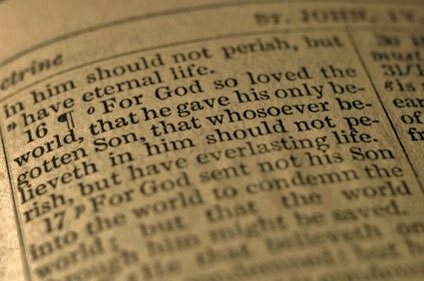 What if heaven is freedom from hatred and evil into all that is loving and good without measure? What if heaven is freedom from all displeasure, discomfort, disturbance, and disharmony into fulfilling peace and contentment? What if heaven is freedom from conflict, anxiety and stress into the experience of what is truly unconditional love between every single one of its inhabitants? Are you kidding me… who wouldn’t want that?
What if heaven is freedom from hatred and evil into all that is loving and good without measure? What if heaven is freedom from all displeasure, discomfort, disturbance, and disharmony into fulfilling peace and contentment? What if heaven is freedom from conflict, anxiety and stress into the experience of what is truly unconditional love between every single one of its inhabitants? Are you kidding me… who wouldn’t want that?
What if there was a sure way out of hell into heaven? What if the only condition behind freedom into that kind of living is having a relationship with the most honest, sincere, compassionate, generous person that ever lived? What if that is all it costs? What… that’s too much?
Why set conditions at all?
Conditions… standards… expectations… a convenient excuse to justify dismissing the idea of relationship with God. What about family relationships? What about romance? What about friendship? While some might like to believe the love in those relationships is without condition, be rest assured these relationships are absolutely conditional and loaded with expectation.
What about scholastic and professional relationships? No standards or expectations there? Are there no conditions to meet to get a good grade and a diploma… or to keep your job, or get a raise or promotion… or to get paid, for that matter?
People in relationship with each other expect honesty, trust and loyalty if they’re going to expect the best out of the relationship. Without necessary standards and conditions relationships are untenable, unmanageable, unstable, and then finally miserable until they fail and die. Parents expect to have trustworthy relationships with their children in order to trust them enough to bless them to the full with the best of their resources. Spouses expect undivided loyalty and commitment for their relationship to thrive. Otherwise, their relationship fails to survive.
Conditions and standards are essential and make sense in all relationships. Why would relationship with God be any different? The literature I read tells me that God doesn’t care about rules and religion. All God cares about is love in relationship… God with us, and us with each other. That’s it!
Why would God set it all up like that? I don’t know. Ask him! Because if that’s how it is, then that’s how it is. It doesn’t matter if we think relationship with the life-giver costs too much. It doesn’t matter if having a relationship with the creator of the universe who loves what he has created sounds unfair. The reality is that our world is in free-fall into self-indulgent entitlement, and evil and hatred have a clear advantage. If God is goodness and love, and this world is consumed with evil and hatred, the contrast between these realities couldn’t be more stark.
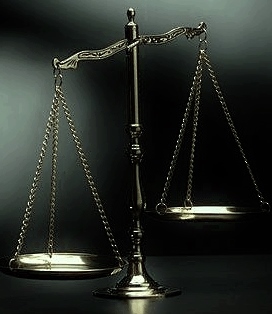 Which side are you on? You best make the right choice about it. Or else, just continue to live with what you already have until the hatred and the evil in the world catches up with you, if it hasn’t already.
Which side are you on? You best make the right choice about it. Or else, just continue to live with what you already have until the hatred and the evil in the world catches up with you, if it hasn’t already.
To believe or not believe? Is there a creator? Does God exist? Is God alive? Does God matter? Is God involved in what happens here? Is God interested? Is God interested in me? Why believe in God? Why not believe in God? What gets in the way of me believing in God?
What do I risk if I am wrong about God one way or the other? What’s at stake, here?
What makes the most sense and what does not? What about all of this that is beyond explanation? What really is tipping the scales one way or the other?
The message of the cross is foolish to those who are headed for destruction! But we who are being saved know it is the very power of God. As the Scriptures say,
“I will destroy the wisdom of the wise
and discard the intelligence of the intelligent.”
So where does this leave the philosophers, the scholars, and the world’s brilliant debaters? God has made the wisdom of this world look foolish. Since God in his wisdom saw to it that the world would never know him through human wisdom, he has used our foolish preaching to save those who believe. 1 Corinthians 1:18-21 (NLT)
If you believe that God doesn’t exist, then I suppose you best pray that he does, and that heaven is real. Because the alternative is truly hopeless and worthy of every fear you’ve ever had.
How can you know that God is real… and that he knows you and loves you?
I suspect that those who do not believe in God, tend to not believe because they cannot believe in God. It isn’t that they don’t believe. They won’t believe. It isn’t so much that they resist believing in the existence of God as much as they refuse to believe in the existence of a bigger-than-life authority. After all, justice is ultimately about what’s comfortable, isn’t it? So, how can God exist if it makes me at all uncomfortable?
Why is it that those who don’t… I mean, won’t… believe in God are so passionate in their opposition? Why care so much about something if it doesn’t exist in the first place? Why care about being judged by those who believe in this “God” that doesn’t exist if they’re the fools?
 “No one… not even God… dare hold me accountable! No one… not even God… dare tell me what to do and what not to do. No one… not even God… dare dictate to me what is best for me. Who can know me better than I know me? Only I know what is best for me.”
“No one… not even God… dare hold me accountable! No one… not even God… dare tell me what to do and what not to do. No one… not even God… dare dictate to me what is best for me. Who can know me better than I know me? Only I know what is best for me.”
Is that right? Where then lies the hope for any kind of mercy from this hell on earth? Where then lies the hope for redemption from imminent suffering and death? Where then lies the hope for anything more than this? Where then lies the hope for a better life?
The Scriptures say, “If you hear his voice today, don’t be stubborn like those who rebelled.” Hebrews 3:15 (CEV)
Once concluding that God is real and alive, originator of all creation, the catalyst and life-giver to everything evolving and living, then everything after that is possible. If God created the heavens and the earth and all of the life contained therein, then something like the virgin birth and the resurrection of his son, Jesus, are unquestionably possible. If God continues to be invested and involved in what he has made and loves, it only makes sense to be on his side of things. If God is all that he is, and he is for me and with me, then who or what can prevail against me?
Once realizing that I was made to live by God, then I need understanding of what it means to live the life that he intended when he gave me life. I accept that I was afforded the favor to choose. Whether I choose wisely or foolishly, I decide. I was made to desire. I was made to love and be loved. I choose to believe that God is loving, and that he loves me. God’s love, once experienced, is most liberating.
With all that is happening in the universe and in the world, how do I know that God is interested in me and loves me? What if in the same way we love what we make and try to repair and restore what we’ve made when it breaks, God loves what he has made and repairs and restores what he’s made from it’s broken condition to whole once again? What if like loving parents that forgive their wayward children when they return, God forgives you and me when we go our way and then return to him?
Why is God Necessary?
Why do we need God?
Well, consider the alternative. If everyone who ever lived, loved their neighbors as themselves, perhaps we wouldn’t feel the need for God. We would find contentment in gladly taking care of each other. Instead, we are selfish. We don’t know how to love ourselves in ways that are healthy enough to love each other.
So then, flawed by selfish desire and motivation, we are prone to selfish mistakes. We are entitled and corrupt. We then on some level contribute to the evil in the world. Because we contribute to the problem of evil in the world, we are all subject to its wrath as a logical consequence. Our lives are therefore vulnerable to infection. Evil is a malignant cancer that is always terminal. No one’s immune.
Where there is no revelation, people cast off restraint;
but blessed is the one who heeds wisdom’s instruction. Proverbs 29:18 (NIV)
Imagine the oceans have been filled by wrongdoing and evil, buckets at a time, for thousands, if not millions, of years. Over the course of my life, perhaps I have dumped a backyard-sized pool of water into the sea of evil. By comparison, a dictator like Hitler or Stalin may have dumped a large lake’s worth of water into the sea of evil. In any case, I contributed something, and continue to through selfish behavior. My selfish behavior has the potential for harm to me, and harm against you. Your selfish behavior can cause you harm and be harmful to me.
The waters in the sea of evil by nature find their way back to me, and back to you. Evil may come back, metaphorically speaking in the form of a storm. It might rush on us like a hurricane or a tsunami. The thing about evil is that it doesn’t care who contributed what in filling the sea. Evil is not partial to anything or anyone. Evil doesn’t care who it hurts, or kills for that matter. When it comes it comes. When it rains it pours. Its floods can be devastating. Evil is a tempest without even a drop of mercy.
We all contribute to the problem of evil. Yet, when evil crashes in on us, we tend to blame God. Where was God? How could God allow the despicable to occur? Blaming God for the evil we contribute to justifies rejecting God; perhaps even denying God’s very existence.
Our reality is that we need God. You know, “Lead us not into temptation but deliver us from evil.” We need to be loved by God to be truly capable of loving ourselves, and in turn, our neighbor. It’s what I need; it’s what you need; it’s what the world needs. It’s what we have always needed from the beginning of time.
Reconciling Sensible Truth with Faith and Religion
God this, Jesus that. Another component to rejecting God is by linking God to religion, and then rejecting religion and religious people. Maybe you are reading this and you’re struggling with it because you’ve been scorned by religion or burned by religious people whose rhetoric is not in line with their behavior. I get it, but this is bigger than that. This is less about what sounds or feels religious and far more about recognizing what makes the most sense.
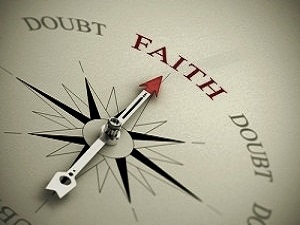 Why does religious banter commonly emote such hostility and tension if it’s supposed to be a cerebral thing… you know… so-called intellectuals (scholars and scientist types) making their claims to truth about our existence while interjecting vigorous, and perhaps even venomous, attacks against faith, religion, God, and (especially) Jesus Christ? Why is faith and religion such a hotly contested topic that so many are uncomfortable with it? It’s not exactly a loaded weapon aimed right at their soul or anything, is it?
Why does religious banter commonly emote such hostility and tension if it’s supposed to be a cerebral thing… you know… so-called intellectuals (scholars and scientist types) making their claims to truth about our existence while interjecting vigorous, and perhaps even venomous, attacks against faith, religion, God, and (especially) Jesus Christ? Why is faith and religion such a hotly contested topic that so many are uncomfortable with it? It’s not exactly a loaded weapon aimed right at their soul or anything, is it?
So, again, why so intense? Why so angry? Why this need to be right… to prove we’re wrong… to convince us, “the enemy,” that believing in God is so ridiculous? Why care so much about us?
Perhaps, what it’s really about is the emotional conflict from within that is the catalyst for such contentious debate. Those who take issue with faith, again, are very passionate about their “rational” arguments. They accuse “believers” of being dogmatic about their faith, yet it seems those opposing faith are just as fanatical in their need to persuade believers to stop believing in something they cannot see.
Rather than take on the intellectual sensibilities of faith, those who passionately oppose the ideals and principles of faith attack not faith, but religion as though it was the embodiment of the moral standards and causes they oppose. It’s their way to justify the pursuit of what they desire and covet that otherwise are morally suspect. Should God oppose their behavior in any way then it is beholden to them to oppose God.
Since what is desired and coveted doesn’t entirely satisfy, it becomes necessary to encroach the moral challenges waged by the assertion that such selfish pursuits are inherently vain. What matters ultimately are the pursuits that have the most certain and sustained benefit to best quality of life; the way of life that is most enjoyed with far more to gain while minimizing cost and the risk of loss.
Please, do not be persuaded by emotional arguments that are in actuality offensive to your deepest intellectual sensibilities; that which you already know to be truth. Allow the light of what you already know at your core to shine brightly on those deceptions lurking in the shadows so that when they are sprung will not catch you unaware.
God didn’t create religion, people did. What God created is relationship and relationship is what living is all about. The questions raised here should not be dismissed because of barriers erected by religion. Putting up walls doesn’t do anything but veil sensible truth. The answers to these questions will inevitably lead to choices about what to do about them.
The essence of faith is to be embraced and experienced… not feared and thereby averted.
“Happiness and rest are what all pursue. But the things of the world, wherein most seek it, they can never afford it; they are laboring and spending themselves in vain. Christ invites you to come to him and offers you this peace that so much excels all that the world can afford. Truth is the agreement of our ideas with the ideas of God; the only happiness with which our souls can be satisfied.” —Jonathan Edwards
Free to Choose… Life or Something Less
Free is defined as without cost; to not be held, enslaved, or imprisoned; to not be confined, constrained, or controlled. We were not created for freedom (freedom from what?) since it was never the will of God that we be controlled, oppressed, or held captive as prisoners and slaves. We were created to live in communion with God. We were meant to need nothing more than happiness in relationship with Him; our deepest desires experienced in the fullness of His deepest desires for us. That’s still the plan! Except that we’re bound by sin, burdened by the weight of its hardship, with the need to be set free.
Peace is defined as a state of tranquility or quiet; freedom from disquieting or oppressive thoughts or emotions; harmony in personal relations. We were not created for peace (peace from what?), since our original purpose never included discord, disturbance, oppression, or disharmony. We were created to live in communion with one another. We were meant to live as one harmonious family, unfettered in love. That’s still the idea! Except that we’re so stressed from confusion and complication that we have need for truce from all disturbance, and deliverance from intrusion into peace.
Adam and Eve had it all… freedom… peace… yet for a time refused the best of relationship with God. The prodigal son that Jesus spoke of (Luke 15) had it all, yet for a time refused the best of relationship with his father. Why? What was missing? What’s wrong with the way we think that we would believe that our way is better—more beneficial—than God’s way?
For where envy and self-seeking exist, confusion and every evil thing are there. James 3:16 (NKJV)
“Everyone is not okay as they wander through life, and when we know people intimately we will find that much has been stolen from them, that many hearts have dried up and died, and that they cannot find a way out of those prisons by their own power.” —Fran Leeman
MEdom is my addiction to me. FREEdom from MEdom is all about experiencing the transformed life in relationship with God, armed with the weapons to wage the war within. Within me is ongoing conflict (ambivalance) between what my intellect agrees makes the most sense (wanting God’s best) and the pageantry of emotionally-driven, self-gratifying sensations that so easily impair my judgment, robbing me of what I truly want in this life. Instead of adjusting my life to the truth (God’s way), I try to somehow adjust the truth to accommodate my life (my way). How does that make sense?
“The fool tries to adjust the truth so he does not have to adjust to it.” —Dr. Henry Cloud
But each one is tempted when he is drawn away by his own desires and enticed. Then, when desire has conceived, it gives birth to sin; and sin, when it is full-grown, brings forth death. James 1:14-15 (NKJV)
Popular psychology suggests that how I interpret an event (something that happens) activates a belief that triggers an emotional reaction (to the event) that leads to an outcome. In other words, if desire (my will) is the filter of my understanding, conceived is belief giving birth to motives that fuel behavior colliding into unfavorable consequences. When control is impaired, when malignant consequences are tolerated, when there is pain and preoccupation with discomfort in the absence of what’s desired (producing anxiety and stress), and when continual pursuant behavior has proven to be harmfully depleting, (like it or not) that is addiction.
“The search for wholeness compels every person, every hour of our lives, whether we know it or not. We ache to be made whole again. And only one person on earth can do this for the heart and soul he himself created.” —John Eldredge
So, why do I do what I really don’t want to do?
“I don’t really understand myself. I want to do what is right, but I don’t do it. Instead, I do what I hate… I have discovered this principle of life—that when I want to do what is right, I inevitably do what is wrong… There is another power within me that is at war with my mind. This power makes me a slave to the sin that is still within me. Oh, what a miserable person I am! Who will free me from this life?” Romans 7:15, 21, 23-24 (NLT)
What is so provocative about what you don’t want to do that lures you into taking the bait, gets its hook in you, and then reels you in?
Keep away from worldly desires that wage war against your very souls. 1 Peter 2:11 (NLT)
These “harmless” desires conspire against us. The conspiracy to ruin lives with adulterated charm is typically a covert strategy. The plan of our spiritual opponent is to take what looks so good to us and use it against us before we catch on. The strategy is to tap into our appetite for what we crave and seduce us with it, even when our rational mind is aware that what we covet is connected to harm and loss. The pain is camouflaged in pleasure and seldom indentified before it strikes. It hardly seems fair.
“Creatures are not born with desires unless satisfaction for those desires exists… If I find in myself a desire which no experience in this world can satisfy, the most probable explanation is that I was made for another world.” —C.S. Lewis
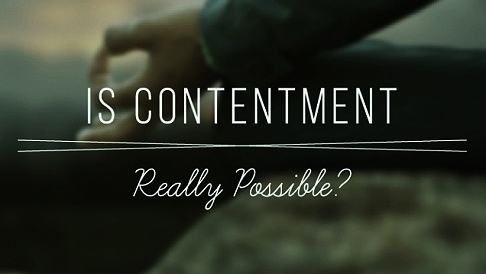 Desire is an emotion with two central elements. There is what I hope for; and then there is what I wish—feel—ought to be. What I hope for is the longing for what is profoundly satisfying; that which holds tremendous value, is delighted in, admired, and cherished. Like digging for treasure or mining for gold, I pursue the prize with a deep sense of conviction and passion, persevering through challenges with unwavering resolve. What ought to be is what I crave, lust for, and covet, feeling I am in immediate need. What ought to be right now is tethered to what I believe I deserve. It makes me hungry, thirsty and eager; and at times even desperate. My appetite for what I believe ought to be is far less particular.
Desire is an emotion with two central elements. There is what I hope for; and then there is what I wish—feel—ought to be. What I hope for is the longing for what is profoundly satisfying; that which holds tremendous value, is delighted in, admired, and cherished. Like digging for treasure or mining for gold, I pursue the prize with a deep sense of conviction and passion, persevering through challenges with unwavering resolve. What ought to be is what I crave, lust for, and covet, feeling I am in immediate need. What ought to be right now is tethered to what I believe I deserve. It makes me hungry, thirsty and eager; and at times even desperate. My appetite for what I believe ought to be is far less particular.
“It would seem that our Lord finds our desires not too strong, but too weak. We are half-hearted creatures, fooling about with drink and sex and ambition when infinite joy is offered us, like an ignorant child who wants to go on making mud pies in a slum because he cannot imagine what is meant by the offer of a holiday at the sea. We are far too easily pleased.” —C.S. Lewis
 When my hope wanes, I tend to settle for what ought to be since it is better than it was. It’s good enough… at least for now, so long as it doesn’t hurt. I am conflicted between that which I value most and know intellectually is best, and that which I settle for as the remedy for my discomfort in the absence of what I need to be fulfilled; entirely satisfied.
When my hope wanes, I tend to settle for what ought to be since it is better than it was. It’s good enough… at least for now, so long as it doesn’t hurt. I am conflicted between that which I value most and know intellectually is best, and that which I settle for as the remedy for my discomfort in the absence of what I need to be fulfilled; entirely satisfied.
“What can this incessant craving, and this impotence of attainment mean unless there was once a happiness belonging to man, of which only the faintest of traces remain, in that void which he attempts to fill with everything within his reach?” —Blaise Pascal
We all, like sheep, have gone astray; each of us has turned to our own way. Isaiah 53:6 (NIV)
Why Jesus? Why Not Jesus?
God knew that we would lose hope and come to trust in ourselves, through the erosion of core values, settle for less than His best, and choose our own path to pursue what we want and believe we deserve, and like a dog chasing its tail, chase contentment that’s never really within reach. So the plan was activated to rescue us. God sent His son to get to know us by being like us while living with us. Living independent from God has costs us everything. But God planned ahead at great cost to restore us into newness of life, free and at peace.
A son is given to us. The government will rest on his shoulders. And he will be called, “Wonderful Counselor”, “Mighty God”, “Everlasting Father”, “Prince of Peace”. His government and its peace will never end. Isaiah 9:6-7 (NLT)
The miracle that was Jesus coming as human flesh—itself the initial act of mercy—set it all in motion; that being the chance for all people to actually experience relationship with God. Jesus would by his experience come to understand us; to love us as one human being to another; to experience real suffering and need God just as you and I need God. He would be our friend and then love like no other when he died for us.
The cauldron of death couldn’t hold him but for a few days, however, and now he comes to us, having defeated death once and for all. What Jesus did out of love at the cross was pay the ransom for our guilt; providing redemption from sin into freedom by the life-giving force of God’s generosity. As Christ was resurrected from condemnation for sin, so were we raised from our fallen condition having been restored into the full inheritance of our salvation in communion with God and into fellowship with one another. You see, God invested in us with everything he loves to have relationship with us, whether we choose to engage in that relationship or we don’t. We’re worth it to him.
“What, after all, is your basis of approach to God? Do you come to Him on the uncertain ground of your feeling, the feeling that you may have achieved something for God today? Or is your approach based on something far more secure, namely, the fact that (Christ’s blood) has been shed, and that God looks on that… and is satisfied?” —Watchman Nee
God extends his love through new life to each one of us; strident and without reservation. Your burden is so heavy… paralyzing. Lay it down and embrace the gift of new life. Even if you’re not sure about Jesus, why not consider looking in to what he is all about? There is nothing to lose and everything to gain; no risk if he is not there, and all reward if he is. In him is life; a better healthier life. If you want him, he’ll find you.
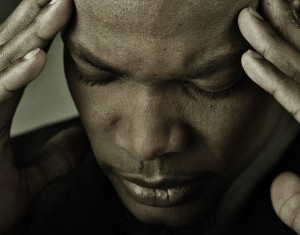 Jesus said to the people who believed in him, “You are truly my disciples if you remain faithful to my teachings. And you will know the truth, and the truth will set you free.” They said, “We have never been slaves to anyone. What do you mean, ‘You will be set free’?” Jesus replied, “I tell you the truth, everyone who sins is a slave (addicted) to sin.” John 8:31-34 (NLT)
Jesus said to the people who believed in him, “You are truly my disciples if you remain faithful to my teachings. And you will know the truth, and the truth will set you free.” They said, “We have never been slaves to anyone. What do you mean, ‘You will be set free’?” Jesus replied, “I tell you the truth, everyone who sins is a slave (addicted) to sin.” John 8:31-34 (NLT)
“Addiction will lie to me in my own voice.” —Grant
Satisfy defined includes: to fulfill the desires, expectations, needs, or demands; to make happy; give full contentment to; to make true by fulfilling a condition; to gratify to the full.
What enslaves us is our need for comfort… love… contentment… peace. To be satisfied—truly satisfied—is to never be in want or need. To be satisfied is to be full… in no need of more… EVER! To be satisfied is to be and have ALL that is pure and best; never in need for better. To be satisfied is to experience the essence of ALL that is free and true. Anything less is discontentment, absent of control. Chasing counterfeit contentment in the world my way, might feel better for a minute… a season… but by the end of the day my thirst is never really quenched.
Jesus replied, “Anyone who drinks this water will soon become thirsty again. But those who drink the water I give will never be thirsty again. It becomes a fresh, bubbling spring within them, giving them eternal life.” John 4:13-14 (NLT)
To believe I am in control of my life is to believe that I have that kind of power, which might suggest that I have “too much pride in my own worth or goodness”, the dictionary’s definition for conceit. While I may not perceive myself as conceited, my preoccupation with dissatisfaction is relentless. The Greek translation for conceit is typhóō, meaning to be enveloped (clouded) with—blinded by—smoke; also referring to “moral blindness.” (Source: Strong’s Greek, citing Thayer’s Greek Lexicon)
“I was so obsessed with me and the reasons that I might be dissatisfied that I couldn’t focus on other people… When I find myself taking the wrong step… it’s because I’m trying to protect myself… What I trace this to is a certain selfishness on my part.” —Barack Obama (August 16, 2008)
was so obsessed with me and the reasons that I might be dissatisfied that I couldn’t focus on other people… When I find myself taking the wrong step… it’s because I’m trying to protect myself… What I trace this to is a certain selfishness on my part.” —Barack Obama (August 16, 2008)
Why do I discard moral objectivity to seek out what does me harm? When did I begin believing the lies from toxic influences about who I am? Why do I acquiesce to irrational thoughts, going on shopping sprees, buying into reckless distortions to the point that I grant them just enough reason to poison my values and infect my reality?
“Although I love to take control, it is so overwhelming and I know that it is not mine. That is why the load is so heavy when I try to carry it. I do that because I stop trusting that God will take care of it.” —Madison
Would You Like to Get Well?
Jesus said, essentially, that I am addicted to sin… and you are too, for that matter. He also said in the Bible that He came to earth for the sick and impoverished; referring to Himself as a physician. I understand that selfish sin is initiated by choice of the mind acted out through behavior. But Jesus is clear that sin is a disease. If addiction to sin is a disease, then addiction to anything symptomatic of sin is a disease. Sin has made us sick. So Jesus asks, “Would you like to get well?”
Click HERE to continue Set Free…
Now all glory to God, who is able to keep you from falling away and will bring you with great joy into his glorious presence without a single fault. Jude 24 (NLT)
_____________________________________________________________________________________________________________________
NOTE: References made on this website to individuals are done so with their permission to publish their stories. Their names have been changed. Direct quotes by anonymous contributors and clients of mine are used with permission. To maintain anonymity, they have each been given the names of U.S. presidents.
